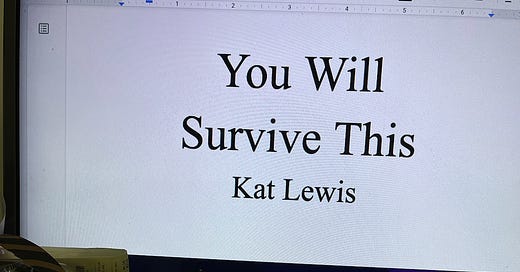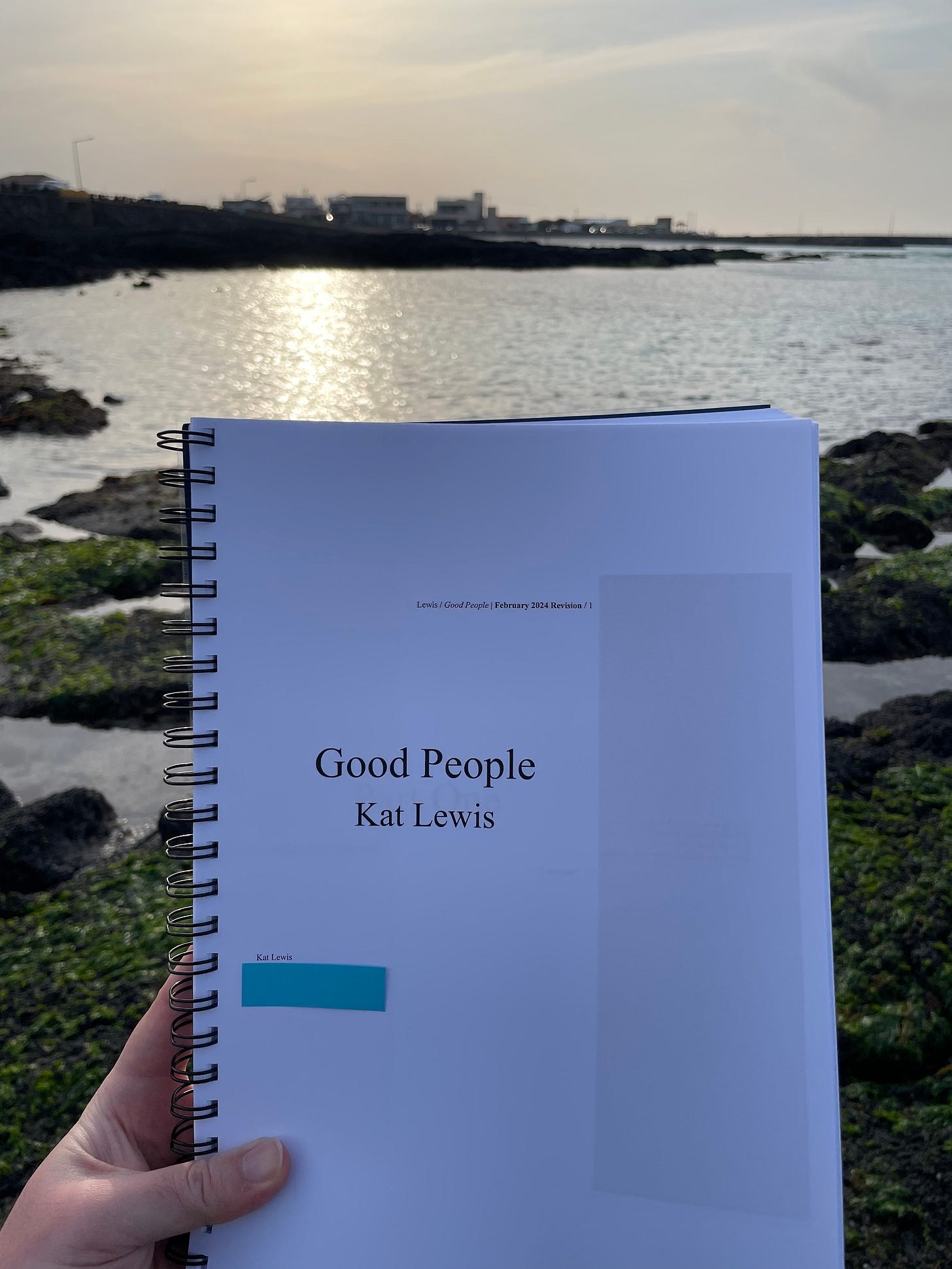Something within me shattered last summer. Before that, focus was my superpower. No matter the situation or circumstances, I could always lock in and efficiently accomplish a task. It was a competency that many dysfunctional companies have punished me for with high-level work for low-level pay. But it was also the reason why I could create content here and complete two novels in three years all while working full-time.
Since I was fifteen years old, I’ve only had one goal: publish a novel in order to become a college professor. By July 2023, I already had one book die on sub, and my second book was weeks away from also being declared dead. All that calculated effort just to come up empty-handed. At the time, it felt like my writing life was over, not because I had failed twice with two books, but because I had no hope that the next book would be any different. Shortly after hope for my future vanished, so did the discipline I used to create unyielding focus. Amid all of this loss, a new belief hijacked my internal monologue: Nothing I do matters.
Now, nearly a year later, I’m struggling to patch together the motivation to create content, to find a new day job, to write at all because it hurts too much to hope, and the misbelief that nothing I do matters still feels like an inalienable truth.
To find a way back to myself—the version of me who could accomplish anything with a little time, patience, and curiosity—I’ve been rewatching movies and TV shows that had once inspired my writing and motivated me to create. Whenever I rewatch something, I always zone in on a specific craft element and track its evolution throughout the story. For The Vampire Diaries, it was Bonnie’s character arc. For Fullmetal Alchemist (2004), it was the theme of death, how the narrative creates opportunities for Ed to accept death as a natural part of life, and how Ed finds new ways to reject it. Now, I’m rewatching Scandal and paying attention to the monologues, their rhythm and repetition, how they might help me write interiority in prose. I’m four seasons into this rewatch, and there’s a monologue that stands out, not for its craft qualities (though Joe Morton’s performance is a wonder to behold), but for how it stands as a metaphor for writing and the pursuit of publication. Before we continue, this is your spoiler warning for Season 4 of Scandal.
First, some story context for the monologue. Eli Pope (Joe Morton) is the father of Olivia Pope (Kerry Washington), the former “Command” of an evil intelligence agency, and the big bad of the series. After Olivia tries (and fails) to kill him, Eli declares she is no longer his daughter and goes into hiding in Canada. But when Olivia is kidnapped and held for ransom, Jake—her boyfriend and Eli’s former protégé—tracks him down to elicit his help in rescuing Olivia. The scene opens on a dreary lake in late autumn as Eli fishes alone. Jake emerges from the woods, and Eli says:
You know, people who don't fish think that fishing is lazy or boring, but it is the complete opposite. There are a hundred little decisions to be made, variables to be considered. And you're never quite sure what made the difference. Did I cast too high, too far to the left? Did I reel it in too slow or, or, or too fast? Is the lure too shiny or too dull? Do I stay here, or should I go over there? And you know it's not luck, but you do not know . . . By how much.
At this point in my writing life, any success or advancement feels like it’s been driven entirely by luck. When thinking about luck, I’ve always used Seneca’s definition. Luck is when preparation meets opportunity. Last year—given all I had done over the past decade—I felt that I had prepared completely, but there was simply no opportunity. As a result, my internal struggle could be summarized with one question: How can I continue this constant preparation—creating content, writing stories—if there is simply no opportunity?
Now that I do have an opportunity, I assumed my motivation, my discipline, everything I need to focus and achieve would snap back into place. But it hasn’t. The second half of Eli’s monologue speaks to this struggle:
People are predictable, unchanging, monotonous. They use the same language, they offer the same excuses, they make the same mistakes. People are endlessly disappointing because you hope they won't be. I knew that she would need me. I knew that you'd come here begging for help. This was all predictable, all disappointing. This is why I am fishing, because I am never disappointed out here, because I don't expect anything, because anything is possible. I can be hopeful out here, even in failure, because I know if I just go out there, around that tree, it might be different. Something might be different. Something I do might make a difference.
For the past several years, the pursuit of publication has been endlessly disappointing because I hoped it wouldn’t be. The only way for me to survive writing and publishing is to think of them both as fishing. When we relinquish all expectation, anything is possible. Just like Eli, I can be hopeful, even in failure, if I expect nothing from this system, from my own writing. Because maybe, just maybe, if I revise this next scene, write that next story, outline that next book, it might make a difference. Maybe all I can do as a writer is play on the page and reap what joy I can from it. And maybe in that reaping, something I do might just make a difference.
Paid subscriptions to Craft with Kat resume on May 1st. Subscribers receive access to monthly craft lessons (including 20+ lessons in our archive), monthly AMAs, and rewards like query letter reviews. Our next craft lesson goes live on Sunday, May 5th. If any of these posts have been helpful to you and your writing life, please consider subscribing to support me as a writer and educator.
See you next week,
Kat






Hi Kat,
What a terrific post. I’ve always loved Morton’s portrayal of Olivia Pope’s father. I like Khandi Alexander (sp)? As her mother as well.
Fishing is a great analogy for what we go through. I could see golfing work as well.
I bet your “dead on sun” books will ultimately find a home when you least expect it.
Allison
Love this! Thanks for sharing. I like the idea of looking at monologues for interiority ideas as well 💡 !